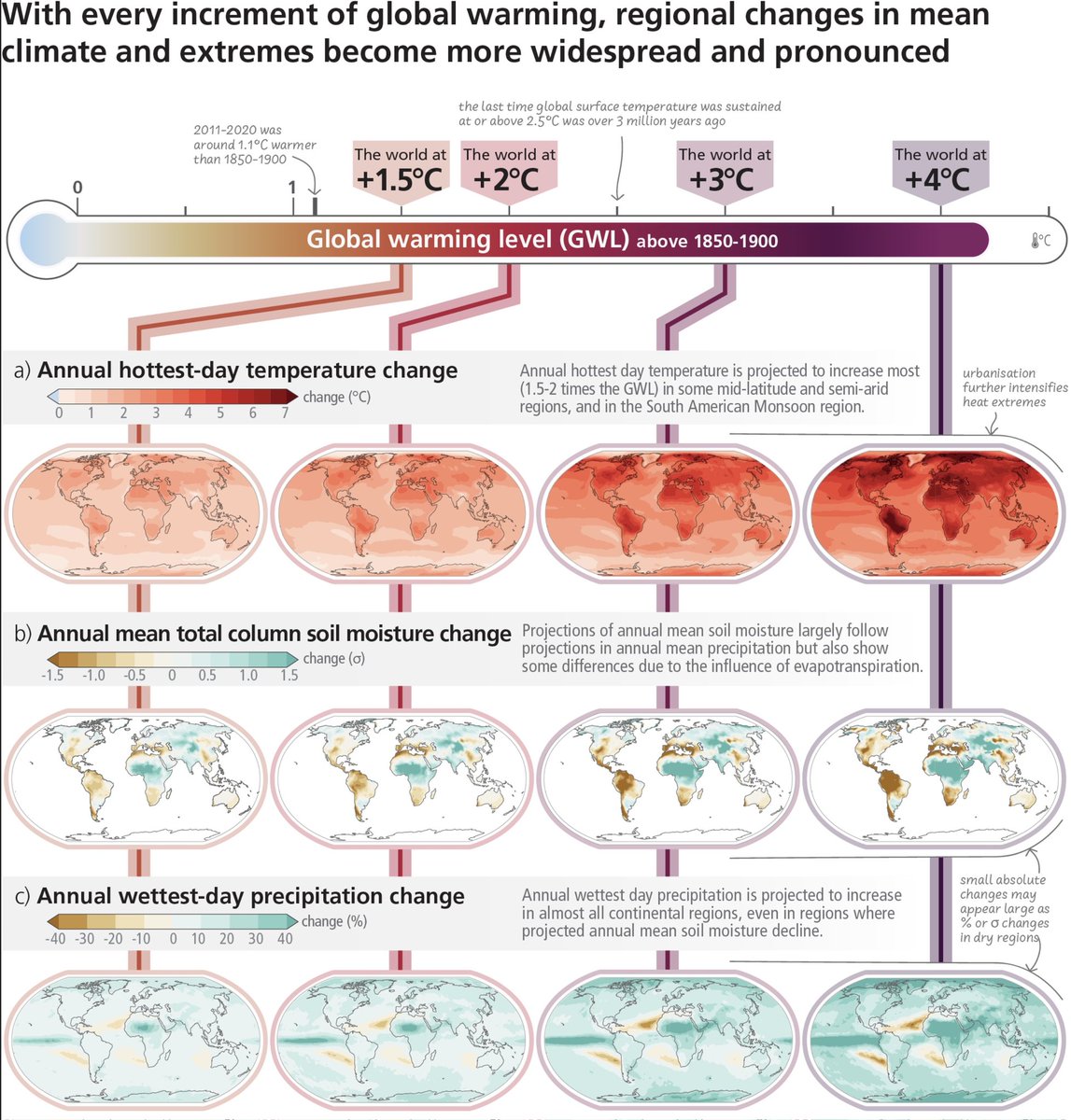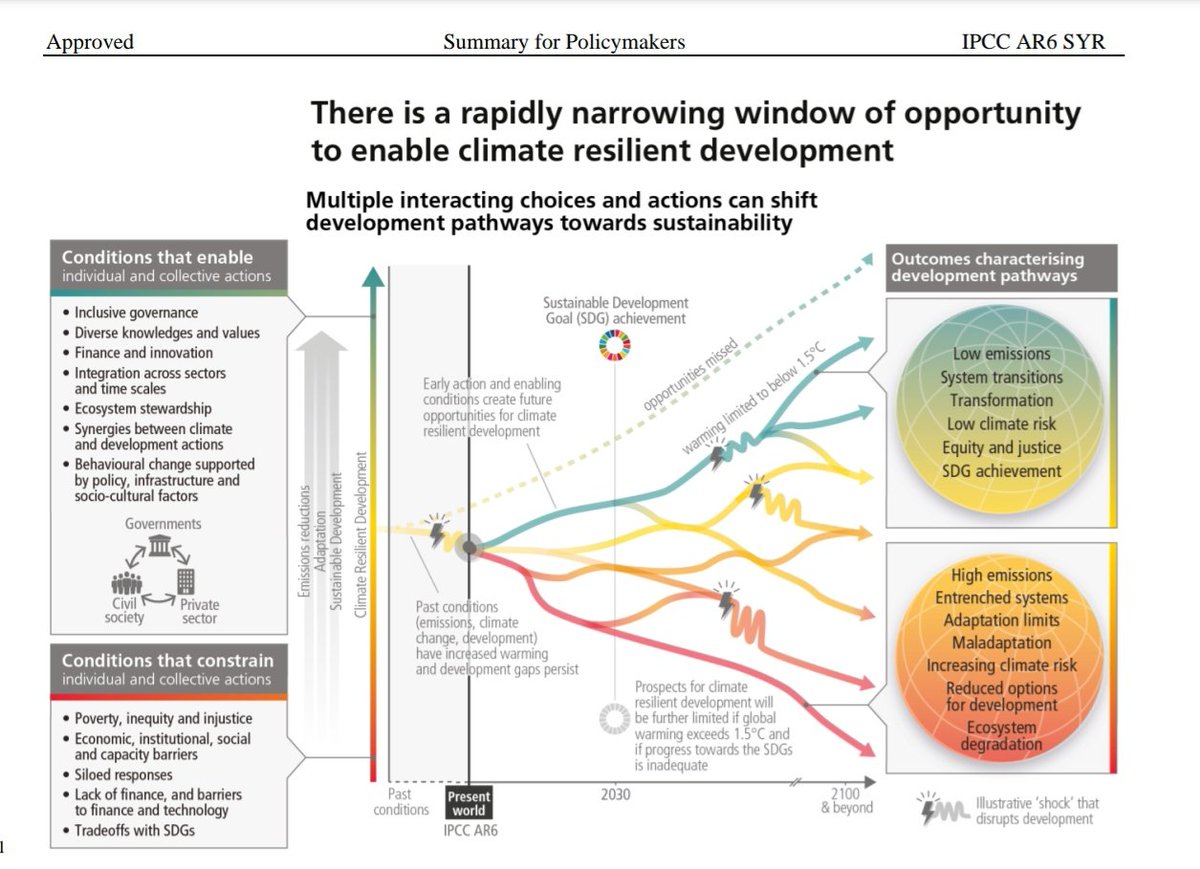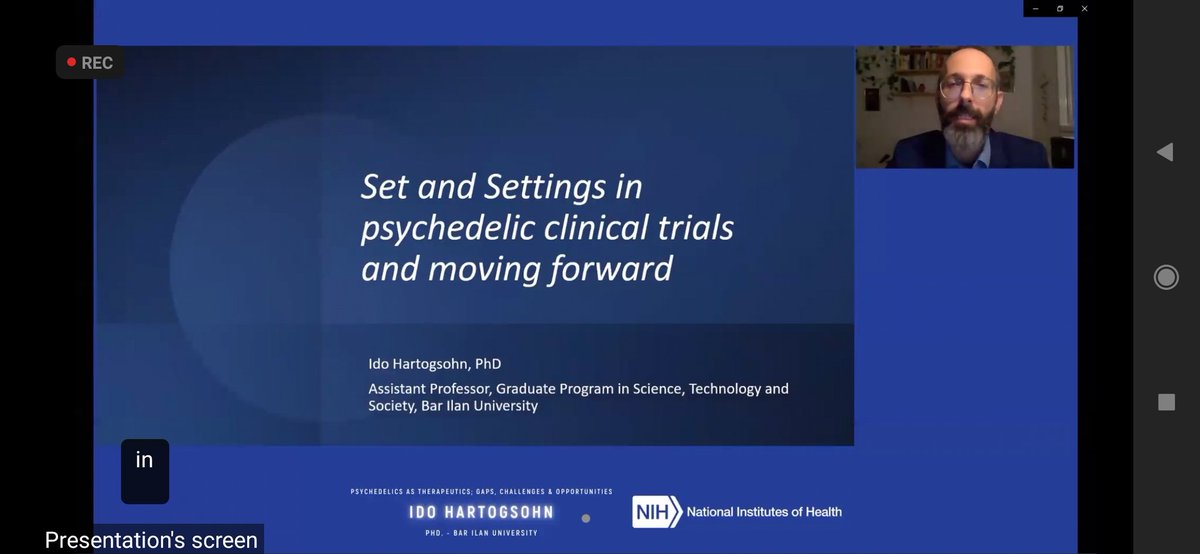
This equinox the @IPCC_CH released the updated edition of our best "manual for spaceship earth" 😉, nicely summarized by Prof. @KHayhoe here:
Should we build connections between our existential #climatecrisis and psychedelics?
🧵👇
https://twitter.com/KHayhoe/status/1637875896433385481?t=-eRtDDqFOSd2hbsaUL81lQ&s=19
Should we build connections between our existential #climatecrisis and psychedelics?
🧵👇

In a nutshell:
"a batata 🥔 ta assando 🔥"
(the potato is roasting), as people say in Brazil 🇧🇷 when facing complicated problems
"a batata 🥔 ta assando 🔥"
(the potato is roasting), as people say in Brazil 🇧🇷 when facing complicated problems

But the GOOD NEWS 🤞 is that YES we have many #AvailableSolutions 💫
And as I highlighted in green in this image, indigenous lands and knowledge are fundamental for implementing some key solutions.
And as I highlighted in green in this image, indigenous lands and knowledge are fundamental for implementing some key solutions.

According to the @IPCC_CH summary (p31): #Cooperation, and inclusive decision making, with #IndigenousPeoples and local communities, as well as recognition of inherent rights of Indigenous Peoples, is integral to successful adaptation and #mitigation across forests and ecosystems
What's more, it's up to #us responsible adults in #THISDECADE, to take action which will impact livelihood for centuries. We are the first, and last, who can #act.
The task? Cut greenhouse gas emissions by 60% by 2035, preserve and restore ecosystems and biodiversity.
The task? Cut greenhouse gas emissions by 60% by 2035, preserve and restore ecosystems and biodiversity.

So one of the biggest challenges is to protect indigenous territories and the #abundance of biodiversity they care for 

And what do #psychedelic drugs have to do with this?
EVERYTHING.
This biotechnology field, foreseen to soon reach billions of dollars, is predicated on sacred indigenous gatekeeping of practices persecuted and prohibited for centuries.

EVERYTHING.
This biotechnology field, foreseen to soon reach billions of dollars, is predicated on sacred indigenous gatekeeping of practices persecuted and prohibited for centuries.


The huge opportunity to be built?
Directing 💰 resources from the psychedelic biotech industry's patented compounds, based on indigenous knowledge, to an international, cooperative, indigenous-led land protection and restoration fund.
pubs.acs.org/doi/10.1021/ac…
Directing 💰 resources from the psychedelic biotech industry's patented compounds, based on indigenous knowledge, to an international, cooperative, indigenous-led land protection and restoration fund.
pubs.acs.org/doi/10.1021/ac…
How?!? BIG Q, needs a big answer to be collectively built!
But three widely adhered international treaties are a place to start: ILO-169, cbd.int and the Nagoya Protocol.
But three widely adhered international treaties are a place to start: ILO-169, cbd.int and the Nagoya Protocol.

Failing to do so can forever mark our current generations for lack of responsibility and maturity regarding the extreme threat to mental and physical health posed by the climate emergency, for which no ammount of pills and therapy will ever be enough. 



Time to act is NOW ⏲️, and developing new treatments is necessary, but not sufficient.
There is HUGE potential for #prevention as well, through psychedelic resource allocation for indigenous rights and climate change mitigation!
There is HUGE potential for #prevention as well, through psychedelic resource allocation for indigenous rights and climate change mitigation!
@threadreaderapp please compile
• • •
Missing some Tweet in this thread? You can try to
force a refresh
















